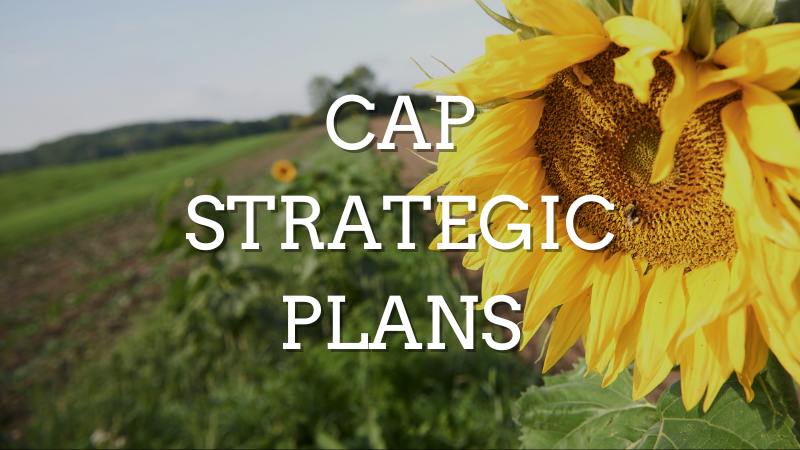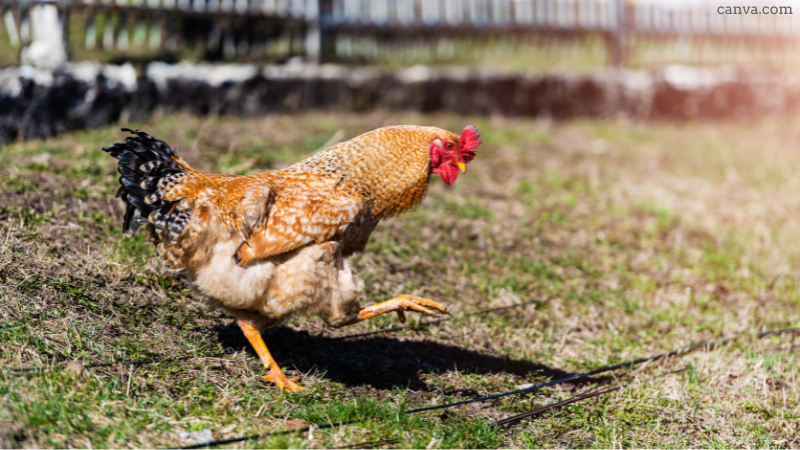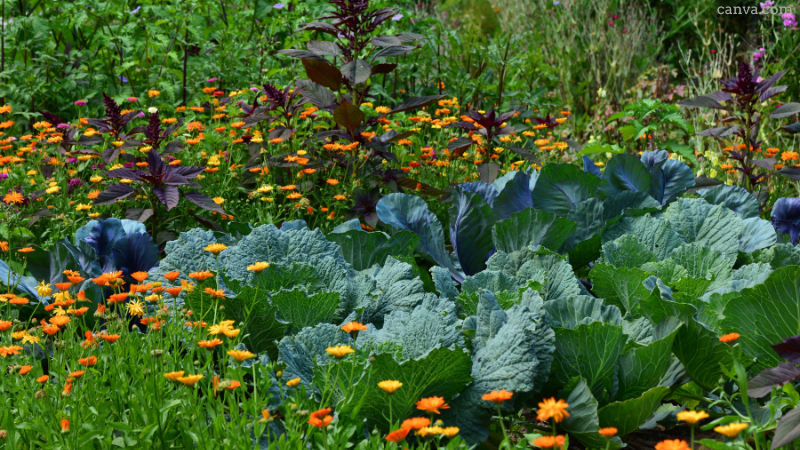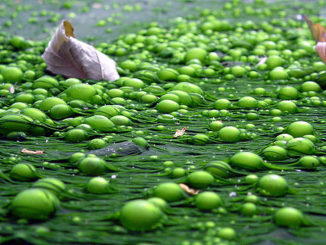
As has become very familiar in recent months, another opportunity to better integrate CAP and the pledges of the European Green Deal is being missed. Instead of watering down the ambition, this time the mainstream political establishment simply postponed or abandoned DG SANTE’s law proposal for a European Framework for Sustainable Food Systems. Yet, there are many ways the CAP or the Long-Term Vision for Rural Areas could accompany and bridge with the upcoming SFS.
This article reflects on the potential links between CAP and SFS. This integration is challenging, but possible. Constructive interdisciplinary dialogue and pro-active cooperation at multiple-level of governance should not be replaced by time wasting, biased strategic dialogues, as is now proposed. The upcoming European elections and future of food and farming cannot inherit this logic of postponing.
By Matteo Metta, Mathieu Willard
Introduction
Back in 2020, the Commission made it very clear that the “CAP will be an important instrument in managing the transition to sustainable food production systems” (page 2). However even then, it was noteworthy that the word “production” was inserted: the logic here was to keep agriculture, health, food, and environment apart. So little substantial integration between the CAP and many initiatives of the European Green Deal could be detected, even when the public image created was one of synergy and ‘win-win’ scenarios.
In the same document however, specific reference was made to areas where the CAP and other agricultural policies could move coherently toward sustainable food systems. These include the reform of the general minimum standards in the Common Market Organisation, the revisions of sectoral interventions in the CAP Strategic Plans, and the better enforcement of the Directive on Unfair Trading Practices, not to mention other well-known interventions under the so-called Pillar I and II (e.g., eco-schemes, investments, LEADER).
Three years later, we are facing an inexplicable delay or probably a complete abandonment of the Commission’s pledge to propose a law for a European Framework for Sustainable Food Systems (SFS) by Q3/2023. Why so? Is this situation coming from technical challenges, or is the European Green Deal again subject to the socio-environmentally regressive forces of business-as-usual?
In a previous article, we tried to unpack the elements contained in the SFS even if DG SANTE has not proposed this law yet. At the same time, there is little or nothing in words or paper available to the public to show that DG AGRI and the whole Commission have done something to advocate for and operationalise an ambitious SFS with a strong CAP component in it.
A Sustainable Food Systems Law – Important for People & Planet, Stalled by the Commission
SFS law and CAP: where can we expect the links?
In our view, the CAP, as many other policies, could accommodate and accompany many elements of a SFS law. The emergence of institutionalised networks of local food policies and food districts in Italy, local food councils in Germany, territorial food projects in France, and sustainable food systems actions in Belgium show much wider policy potential.
Based on the Inception Impact Assessment (IAA) for the SFS, Table 1 attempts to reflect on some of the many links that can be drawn between the elements of the SFS and the CAP.
| Short description of some elements of a European Framework for SFS | Elements of the CAP Strategic Plans and CMO |
| Sustainability principles and objectives, providing a common understanding as goals to be achieved | Are there coherences or incoherences, overlaps or gaps between the sustainability principles and objectives of the SFS law and the CAP, including the CMO?
Does a European framework for SFS imply a revision of the CAP objectives for the sake of policy coherence? |
| General minimum standards to be met for foods produced or placed on the Union market and related food operations, which could be linked, amongst others, to environmental and social aspects; | Are there overlaps or gaps to be filled out in the CMO regulation in order to meet the minimum standards set up in the SFS law?
Can the general minimum standards set up with the social conditionality of CAP direct payment be transposed to the SFS and CMO? |
| Responsibilities of food system actors and Governance mechanism(s) of the Union sustainable food system, e.g., appropriate cross-sectoral coordinating mechanisms for joint actions between governments, civil society and the private sector, including with third countries; | To what extent can the CAP interventions and priorities be strengthened and adapted to accommodate the role of new governance actors acting towards sustainable food systems, e.g., corporate food market observatories, local food councils, small-medium consumer-producer cooperatives? |
| Horizontal elements for sustainability analysis in relation to regulated products in the food chain, complementing the existing ‘risk analysis’ principle. | How can the SFS’s principle for ‘sustainability analysis’ coupled with ‘risk-analyses’ be applied at the level of CAP direct payments too, for instance in the potential case of GMO-deregulated seeds in CAP coupled support? |
| Processes to ensure synergies and mechanisms, including incentives, to facilitate the transition towards sustainable food systems; | Can small-medium scale and mixed producers organisations owned by the farmers or community become eligible and better targeted by producer organisations funded by CAP sectoral interventions?
Could the SFS enhance public procurement criteria in educational and other institutions and establishments? Currently, Member States must choose distribution based on at least one of those objective criteria: health, environmental considerations, seasonality, variety, locality, organic production, and short supply chains. Could the SFS potentially make all of these criteria obligatory in the decision-making process? |
| Provision of information on the sustainable performance of the food (sustainable labelling), while ensuring consistency with other relevant EU labels (e.g., organic) and taking into account other relevant ongoing EU initiatives. | Can the provision of information on the sustainable performance of food (SFS) and the protection of both consumers and farmers’ intellectual property rights of agri-food quality schemes be extended also in electronic commerce (CMO regulation)? |
| EU wide monitoring framework(s) for evaluating progress towards EU food sustainability objectives. | What additional CAP indicators can be envisaged to account for the contribution of the CAP towards the objectives of the SFS law (e.g., food waste), or vice-versa, how can the SFS law make use of the common CAP indicators to measure its performances and impacts (e.g., impact indicators related to antimicrobial use, animal welfare, organic farming, pesticides use, etc.)? |
Table 1: Reflecting on the links between CAP and SFS
The possibilities for interaction between the CAP and the SFS are potentially huge. It could affect redistribution of funds, monitoring and reporting, subsidiarity, policy coherence, to name some opportunities. Most importantly, the SFS could provide a legal basis to render some Green Deal and Farm to Fork targets legally binding – features missing from and thus significantly weakening the current CAP.
These are just some elements of the CMO and CAP that could be impacted by a robust SFS. In the past, the CAP has experienced significant changes, such as both internal and external convergence (however slow) or the gradual elimination of direct export subsidies (although current direct payments effectively act as indirect export subsidies). The SFS, we hope, could be a catalyst for the next big CAP overhaul.

Integrating CAP and SFS to reward and expand a transition already happening on the ground
Initiatives aimed at developing local food systems are already sprouting up across Europe and have been for quite some time. The following example also illustrates how having the capacity to offer reliable and timely financing can help establish a promising transition tool in the long term.
The example we want to talk about is the development of food districts in Italy that aim to foster collaboration among agricultural and rural stakeholders in the production chain. One of their main goals is to ensure fair recognition of the work of all those involved and traceability of the production process, ultimately guaranteeing consumer confidence in local products. But they also have various specific objectives: regional development, cohesion and social inclusion; guaranteeing food safety, reduced environmental impact of production and food waste; safeguarding the rural landscape.
The Italian CAP Strategic Plan recognises these districts as entities with the potential to initiate cooperative efforts directed towards two main goals: firstly, promoting the development of fair supply chains that equitably distribute added value among participants, and secondly, safeguarding the interests of consumers and civil society concerning health, safety, and food quality.
Despite the noble intentions with which they were born, the food districts have struggled to get off the ground, at least until the first round of consequential funding started. Between 2019 and 2022, private and public funding combined rose from Euro 25 million to 315 million. Subsequently, the option to utilise National Recovery and Resilience Plan (PNRR) funds became available. Now, with funding from both the CAP and PNRR, the potential for engagement has reached Euro 7 billion.
In 2021, there were 65 Food Districts recorded, today there are 188. There is no doubt that the arrival of financial resources has been a driving force behind their development. Hopefully, the SFS will be able to streamline more CAP money towards projects of a similar nature.

Conclusions
The alignment between the CAP and many other initiatives of the European Green Deal does not happen overnight, but this is possible. The investments put forward by the EU in terms of CAP networks and technical assistance, rural pacts, research and innovation, policy-science interfaces, and forecasting modelling of the JRC should anticipate these scenarios and the possible steps to realise them. These efforts should also arrive on time, and not too late when the EU has again lost the momentum for a transition towards sustainable food systems.
In terms of interinstitutional work in the European Commission, the active engagement and pro-active role of DG AGRI in accompanying DG SANTE in the publication of an ambitious SFS law with a strong CAP component, including the Long-Term Vision for Rural Areas, appears to be lacking. Compared to the peculiar public tweets of Agri-Commissioner Wojciechowski advocating against the Commission’s own Nature Restoration Law, at least in this case, DG AGRI remains silent and invisible on this important file.
Yet, the clear failure to refine and better target CAP, using the Farm to Fork and Biodiversity Strategies, is a huge opportunity missed on the part of this Commission.
Constructive interdisciplinary dialogue and proactive cooperation starting from Brussels and along the multiple-level governance of the EU should not be replaced by capricious political games, or the promises for yet more pandering distractions and obfuscations. In recent months we’ve seen repeated impact assessments which are ignored if they show opportunity rather than echo agri-lobby spin. We’ve also seen a proposal for time wasting strategic dialogues with what are the most listened-to lobbyists around.
The upcoming European elections and future of food and farming cannot inherit this logic of postponing ambitious and much needed reforms, nor the continuation of operational silos, as social and ecological realties deteriorate. Our people and planet deserve better.
Download this article as a PDF
 This article is produced in cooperation with the
This article is produced in cooperation with the
Heinrich Böll Stiftung European Union.
More on CAP Strategic Plans
Impact of CAP Beyond the EU – A Closer Look on Soya Imports and Milk Product Exports
French CAP Strategic Plan : EU Sued over Approval of the Plan
“A Fairer CAP”, Really? | Analysing Fairwashing in CAP Talks and Practices
CAP Environmental Derogations: What is the Impact on Food Security?
CAP post-2027: An Integrated Rural and Agricultural Policy – Part 2
CAP post-2027: An Integrated Rural and Agricultural Policy – Part 1
Can the CAP Strategic Plans Help in Reaching our Pesticide Reduction Goals?
Wallonia’s Observation Letter: A plan that fails to address climate and biodiversity crises
CAP Strategic Plans and Food Security: Fallow Lands, Feeds, and Transitioning the Livestock Industry
A Just and Green CAP and Trade Policy in and Beyond the EU – Part 2
A Just and Green CAP and Trade Policy in and Beyond the EU: Part 1
Bulgaria’s CAP Strategic Plan: Backsliding on Nature and Biodiversity
Changes “required” to Ireland’s CAP Strategic Plan – European Commission
French CAP Plan: What Opportunities for Change During the New 2022-27 Presidential Term?
CAP, Fairness and the Merits of a Unique Beneficiary Code – Matteo Metta on Ireland’s Draft Plan
ARC Launches New Report on CAP as Member States Submit Strategic Plans
Slashing Space for Nature? Ireland Backsliding on CAP basics
Quality Schemes – Who Benefits? Central America, Coffee and the EU
Civil Society Organisations Demand Open and Ambitious Approval of CAP Plans
CAP Strategic Plans: Germany Taking Steps in the Right Direction?
CAP Strategic Plans: Support to High-Nature-Value Farming in Bulgaria
Commission’s Recommendations to CAP Strategic Plans: Glitters or Gold?
German Environment Ministry Proposals For CAP Green Architecture
CAP Performance Monitoring and Evaluation Framework – EP Position
A Rural Proofed CAP post 2020? – Analysis of the European Parliament’s Position
CAP Beyond the EU: The Case of Honduran Banana Supply Chains
CAP | Parliament’s Political Groups Make Moves as Committee System Breaks Down
CAP & the Global South: National Strategic Plans – a Step Backwards?
CAP Strategic Plans on Climate, Environment – Ever Decreasing Circles
European Green Deal | Revving Up For CAP Reform, Or More Hot Air?
Climate and environmentally ambitious CAP Strategic Plans: Based on what exactly?
How Transparent and Inclusive is the Design Process of the National CAP Strategic Plans?





